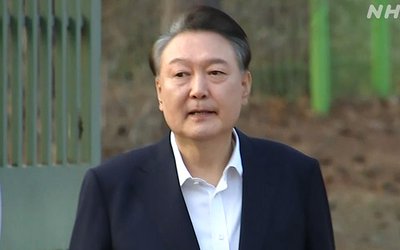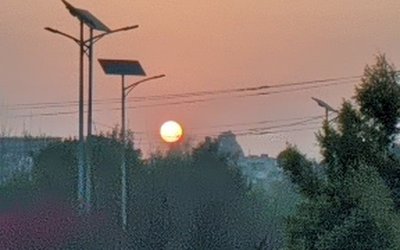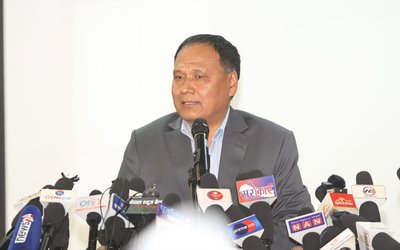
All INGOs have been working in the post-disaster scenario, what would be the possible role of INGOs like Practical Action now?
After rescue and relief operations, now we are working on the temporary adjustment phase. After this, we can move to permanent rebuilding and reconstruction phase. So far as the work of Practical Action is concerned, we were involved in relief operations in Gorkha and Dhading districts. We provided food and tents to the victims to support them for three weeks.
What is Practical Action doing now?
We are supporting to build transitional shelters in various parts of the country. As the monsoon season has begun, the people need immediate temporary shelters as they are not in a position to build new ones. Given the economic conditions, everyone cannot build the new shelter in the coming year. Thus, we are supporting people to build strong transitional shelters.
How is Practical Action working in earthquake zones?
With the coordination of the District Disaster Relief Committee, we are providing zinc to the people. Our basis for selection is on overall assessment of DDRC. We supplied zinc to two VDCs, Gorlang and Aslang, of Gorkha. We are also working in Jyamrung Village of Dhading district distributing zinc. We have already distributed zinc to 1000 households. We are still providing another 700 households.
What else has Practical Action done?
We have already provided training to the local masons on how to build temporary shelters. Safe shelter is important. It will last for another two to three years. We have also constructed toilets. Along with this, we are also supporting the people whose livelihood is under threat. We don’t have much time to make needs assessment. We have relied on the assessment made by DDRC and District Development Committee. We provided livelihood support to much needy people only with cash. We are considering providing 1000 families cash of 7500.00 rupees each to purchase much needed goods. We have already signed an agreement with the DDRC. Our first priority was shelter followed by livelihood. Our new focus is on community level drinking water as we are receiving a lot of complaints in villages about the damage in drinking water supply system including tanks, pipes and taps. We have already done some assessment. Now, we are working on how to fix them.
What plans do you have for the long run?
For the long run, we are also planning to go in rebuilding and reconstruction. We will start our rebuilding process after December and January 2016. We will support in rebuilding earthquake resilient buildings. We are also planning how to support construction of such buildings. This will be a three years' plan. We are doing assessments for this. Even before the start of reconstruction or before December or June, we are considering to provide training to masons in October and November to make earthquake resilient homes.
As Practical Action has been actively involved in disaster related works, what is the state of early warning system? How prepared are we for the coming floods?
We have continued to work in Karnali, with early warning system in Banke and Bardia. Besides that we are also working in Kosi and Kankai Rivers. Last year's experiences have taught us that upstream information is important to reduce the risks downstream. Thus, we are making our communication system more reliable and strong in the upstream areas. We had got the timely information about the rainfall upstream last year. However, our communication channels were completely disrupted when there was a heavy flood. We have already improved our communication system and strengthened the existing system. We supplied the communication initially but we were unable to prevent the damage.
What lesson have you learnt from last year’s flood?
Taking a lesson from last year's flood, we have made many improvements in our communication system. Department of Hydrology and Metrology officers in Surkhet have already updated their rain gauge and we are supporting the linkage. Now, there is an early warning network downstream Kosi and Kankai. Practical Action and DOHM have been jointly working in some districts to upgrade the gauging systems.
- IME GROUP: Expands Into Paper Industry
- Mar 24, 2025
- CPN UML: Instigated By India
- Mar 23, 2025
- ADB’S CHIEF ECONOMIST: Nepal Reduces Poverty
- Mar 11, 2025
- FM DR. DEUBA: A Successful Visit
- Mar 11, 2025
- MD GHISING: Target Of Personal Grudge
- Mar 09, 2025















